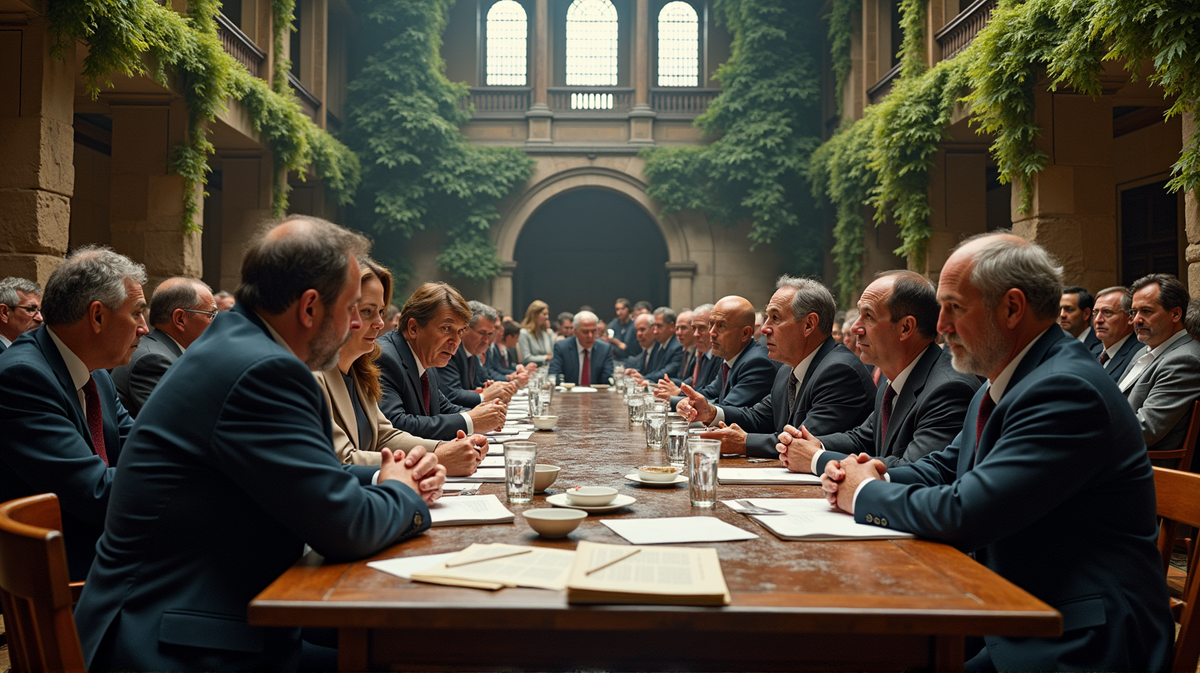Can Universities Thrive Amid Political Controversies? A Provocative Inquiry
Explore the complex balance between academic freedom and political influences in modern universities and the implications on scholarly integrity.

Is it possible for universities to remain neutral and detached while engaging with pressing political and social issues? According to Sanjeev Bikhchandani, co-founder of Ashoka University, the answer lies in balancing scholarly pursuits with political nuances. In what could be seen as a response to J.H. Newman’s age-old portrayals of university roles, Bikhchandani posits that universities ought to create spaces for a multiplicity of ideas while steering away from full partisan endorsements. But how feasible is this ideal in our increasingly polarized world?
The Struggle for Academic Integrity
Universities are not merely centers of professional training or cultural indoctrination – they are arenas for critical habitus. Yet the question remains whether they should venture into the realms of advocacy and activism. By maintaining academic distance from contentious issues, do universities risk stifling intellectual growth and critical discourse as allegedly evident in recent critiques of the Supreme Court’s handling of sensitive matters?
Navigating Scholactivism and Public Intellectualism
Public intellectualism can certainly be a double-edged sword, fostering both enlightenment and controversy. Scholars like Ngũgĩ wa Thiong’o exemplified intellectual rebellion, echoing thoughts from the margins. However, embracing such a path may not align with Bikhchandani’s vision within a liberal institutional framework where ‘scholactivism’ merely mirrors personal choice rather than institutional alignment.
Educational Institutions as Political Spaces
Legal education sharply illustrates the intertwining of politics and pedagogy. As Duncan Kennedy highlighted, law schools often reflect institutional power imbalances, potentially perpetuating societal hierarchies. Do universities have the obligation to critique these structures openly, or should they adhere to the confined realms of traditional legal interpretation?
The Democratic Obligation of Universities
Who is responsible for raising public consciousness on national security, legal critiques, and governmental overreach if not academia? The role of universities as custodians of democratic principles seems to clash with an overt separation from political engagement. The implications of such detachment become distressingly apparent when reflecting upon instances like the treatment of Muslim minorities in India and the ongoing lynching incidents linked to religious tensions.
A Pledge for Intellectual and Moral Integrity
Newman’s assertion that universities should prioritize intellect over morality is continually questioned in contemporary discussions. How can institutions of higher learning champion values of integrity and secularism amid rising populism? Drawing a parallel with Alan Garber’s defense at Harvard, it’s evident that academic freedom must be vigilantly guarded against state overreach, ensuring that universities remain sanctuaries for diverse ideation.
Crafting a Sustainable Identity for the Modern University
Universities wield the power to shape knowledge communities, possibly sidelining state agendas or socio-political narratives. Bikhchandani’s take may not wholly capture a harmonious balance, prompting critical reflections on the autonomy of academia versus the state’s policy-making prerogatives.
The suggested path involves constructing robust frameworks and dialogues that advance critical scholarship, honoring both historical legacies and modern exigencies. Ultimately, higher education must evolve as the vanguard of intellectual freedom, challenging dominant narratives and nurturing the minds that will define future epochs. According to The Leaflet, this discourse is pivotal for understanding the evolving nature of academic freedom in today’s global landscape.





